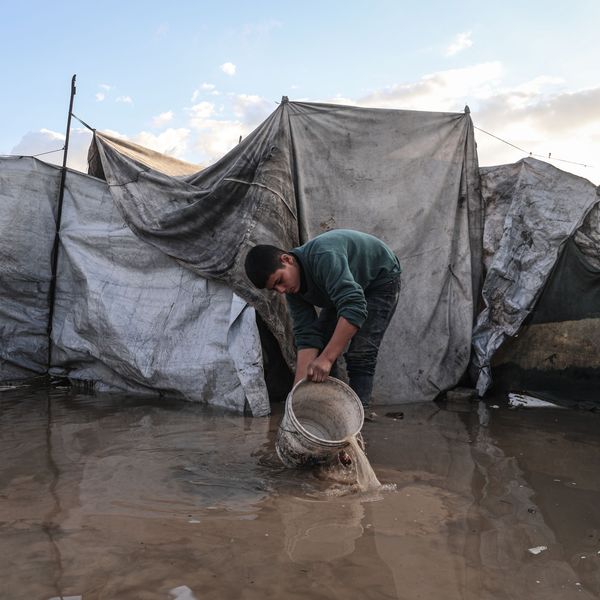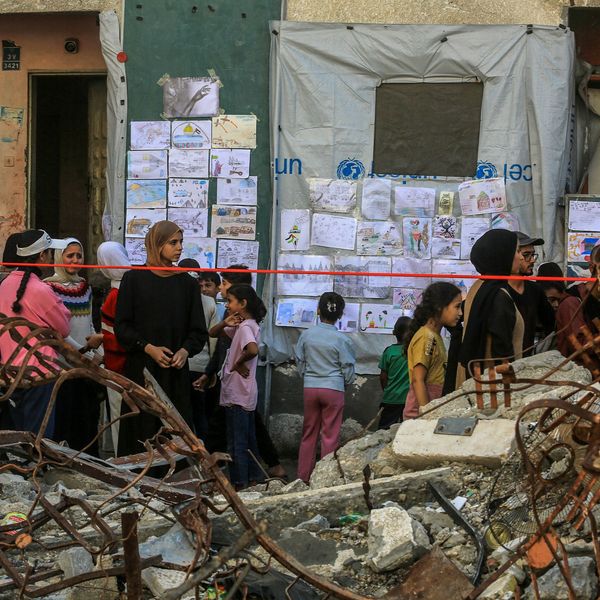Amid the Israeli air strikes there is a lull in the infighting, which had once again threatened to bring Gaza to the brink of civil war. Many Palestinians here fear it could be short-lived.
For Gaza's latest descent into anarchic violence represents more than just another broken ceasefire. The bloodshed and intimidation threatened every aspect of society as Fatah and Hamas gangs struggled for control of strategic parts of the city.
The street battles verged on war. Fighters brought out caches of heavy arms, RPGs and mortars. Israeli bombardments added to the Strip's misery.
Civilian life was the first casualty. Residents dared not leave their homes while masked gunmen held positions on the street and snipers controlled roof tops. Piles of burning rubbish poured smoke into the air. Shops were closed.
Khalil Yaziji, a shopkeeper in western Gaza City, explained how two dead and bleeding bodies had been dumped on the pavement, blocking the shop's entrance. "I honestly feel that at any moment, someone could come in and shoot me," he said. "Our only way out is for Israel to keep bombing us until we die," he sighed. "At least that way it's more honourable."
As always, it was the innocents who suffered most. Umm Muntaser, a 42-year-old who has seven children, was trapped inside Borj el-Saleh, a residential tower block placed under siege by Hamas gunmen. "We have been living in our kitchen for the past two days," she said. "Eleven or 12 apartments have been burnt... there are snipers everywhere. We are human beings, what's our fault in all this?"
Hadeel Abu-Dayyal, a 17-year-old student, found herself trapped in Bourj el-Nour, another building. Fearing for her life, she and her family went to the building's basement. Hamas fighters followed them. Soon, Fatah gunmen were firing into the basement. Like many Gazans, Hadeel is losing faith in her country. "After I saw that even ambulances weren't allowed to reach us, I thought, 'what is this nation, these people, that I am working so hard to build?'" Many people want to emigrate, but with Israel still in control of the borders, even leaving the Strip is a challenge.
Stories have also begun to emerge of summary executions at roadblocks. The assassination of Sheikh Nahed Saleh al-Nimr, a well-known religious figure, was so brutal it shocked even the war-weary people of Gaza City. His body had been severely beaten and he had been shot between 42 and 50 times. "He was like a sieve," his brother said.
(c) 2007 The Independent


